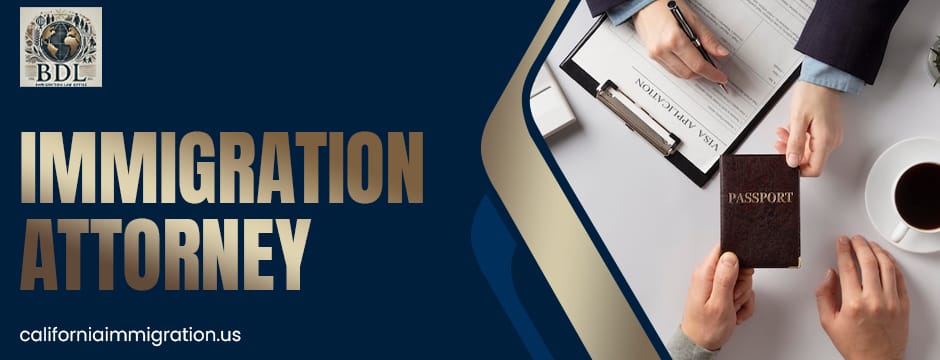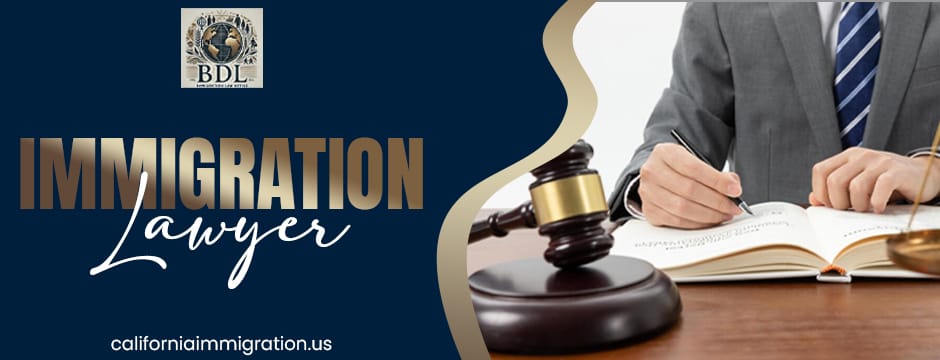Immigration cases in the United States are not judged on emotions alone. They are built on evidence. The U.S. Citizenship and Immigration Services (USCIS), the Executive Office for Immigration Review (EOIR), and other immigration agencies rely heavily on documentary proof to decide whether a person qualifies for relief or a benefit. For many applicants, the difference between approval and denial is not the story they tell, but the evidence they submit to support it.
This is why working with an experienced immigration lawyer can be the key factor in winning a case. Lawyers understand what counts as credible proof, how to collect it, and how to present it in a way that immigration authorities respect. Research on immigration case outcomes shows that individuals represented by attorneys are far more likely to succeed, particularly when their cases require strong evidence.

The Central Role of Evidence in Immigration Law
The Immigration and Nationality Act (INA) sets out the legal framework for most U.S. immigration cases. Within this framework, evidence is used to establish eligibility for benefits and protection from removal. The burden of proof lies with the applicant or respondent. In asylum cases, for example, Section 208 of the INA requires applicants to show a well-founded fear of persecution. In family-based petitions, the petitioner must prove the bona fide nature of the relationship under Section 204. Employment-based immigration cases require evidence of labor certification, qualifications, and job offers as required by Sections 212 and 214.
Court studies have shown that cases without sufficient documentary support are far more likely to fail. For example, research published by the Transactional Records Access Clearinghouse (TRAC) at Syracuse University consistently demonstrates that representation by an immigration lawyer significantly increases approval rates in asylum and deportation cases. Evidence is central to that outcome.
What Counts as Strong Evidence
Immigration law does not treat all evidence equally. Certain types of proof carry more weight because they are considered reliable, verifiable, or official. Primary documents, such as birth certificates, marriage certificates, police reports, and government-issued records, often carry the most weight. Secondary evidence, such as affidavits or letters, may be used when primary documents are unavailable, but they must be credible and consistent.
An immigration lawyer understands these rules of admissibility. They know when to push for official records and when to rely on secondary sources. They also know the evidentiary standards set out in the Federal Rules of Evidence and how they are applied in immigration court, even though immigration proceedings are considered civil rather than criminal.
How Immigration Lawyers Build the Evidentiary Record
Building the evidentiary record is not simply about collecting papers. It requires strategy. Immigration attorneys use a combination of documentary, testimonial, and expert evidence to create a persuasive case.
For asylum seekers, country condition reports from the U.S. Department of State, international NGOs, and human rights organizations often become crucial. Lawyers integrate these reports with personal statements, medical evidence of past harm, and affidavits from witnesses. This multi-layered approach helps meet the legal standard of a well-founded fear of persecution.
In deportation defense, lawyers present records of family ties, rehabilitation from past offenses, community service, and medical conditions. These elements are designed to meet the statutory requirements for relief such as cancellation of removal under INA Section 240A.
For family-based petitions, the focus is on proving the authenticity of the relationship. A marriage certificate alone is rarely sufficient. Attorneys present joint bank accounts, lease agreements, tax filings, and photographic evidence to demonstrate that the relationship is ongoing and genuine.
The Risks of Weak or Incomplete Evidence
Immigration officers and judges are trained to look for inconsistencies. When evidence does not match the applicant’s story, credibility comes into question. A report from the American Immigration Council noted that credibility determinations play a decisive role in many asylum denials. This means that incomplete or inconsistent records can undermine an otherwise strong case.
Weak evidence also increases the risk of lengthy delays. Requests for Evidence (RFEs) and Notices of Intent to Deny (NOIDs) are issued when USCIS believes the submitted proof is insufficient. Responding to these notices can be time-consuming and stressful, and many applicants struggle without legal help. An immigration lawyer minimizes this risk by ensuring that evidence is complete, consistent, and properly organized before submission.
Organizing and Presenting Evidence
The way evidence is presented matters almost as much as the content itself. Immigration courts and agencies handle thousands of cases every year. Officers and judges have limited time to review files. A disorganized submission can create confusion or cast doubt.
Immigration lawyers present evidence in a logical and structured format. They prepare cover letters, exhibit lists, and explanatory briefs that highlight the relevance of each piece of evidence. They connect documents to the legal requirements of the case, making it easier for decision-makers to follow the narrative. Research has shown that well-prepared submissions reduce the likelihood of procedural denials and improve overall case outcomes.
Preparing Clients for Testimony
Evidence is not limited to documents. Oral testimony is often just as important. In asylum and deportation proceedings, applicants are expected to testify about their experiences and circumstances. An immigration attorney prepares clients for these high-stakes situations by reviewing the evidence with them, anticipating questions, and ensuring that their testimony is consistent with the documentary record.
The National Association of Immigration Judges has emphasized that credibility findings are among the most critical factors in asylum and removal cases. Having a lawyer who can prepare a client to testify consistently with supporting documents significantly increases the likelihood of success.
The Value of Expert Evidence
In some cases, expert testimony can strengthen claims. Psychologists may provide evaluations documenting trauma in asylum cases. Economists may testify about the impact of deportation on a family’s financial situation. Country condition experts may explain the risks faced by individuals returning to certain regions. Immigration attorneys know when to introduce expert reports and how to ensure that these reports meet evidentiary standards.
Law Offices of Brian D. Lerner
At California Immigration, we have nearly 30 years of experience building strong evidentiary records for clients across the nation. We understand that your case is more than paperwork. It represents your family, your safety, and your future. Our team works closely with each client to collect the right documents, organize them clearly, and connect them to the legal standards required by immigration law. We prepare our clients for interviews, hearings, and every step of the process, ensuring that the evidence tells a consistent and persuasive story. When you work with us, you benefit from decades of experience, a proven track record, and a commitment to protecting your rights.

Conclusion
Evidence is the backbone of every immigration case. Without it, even the most genuine claims can fail. Strong evidence supports credibility, satisfies legal requirements, and convinces immigration officers and judges that an applicant deserves relief or benefits.
An immigration lawyer brings knowledge, strategy, and experience to the process of gathering, organizing, and presenting this evidence. They know what types of proof carry the most weight, how to avoid mistakes, and how to prepare clients for testimony that aligns with their documents. Research consistently shows that representation increases the chances of success, and the reason is clear. Lawyers know how to build cases that stand up to scrutiny.
For anyone facing the challenges of the U.S. immigration system, the support of an experienced immigration attorney is not just helpful. It can be the difference between staying with your family and being separated, between safety and danger, between approval and denial. Strong evidence, guided by skilled legal representation, is the path to the best possible outcome.

